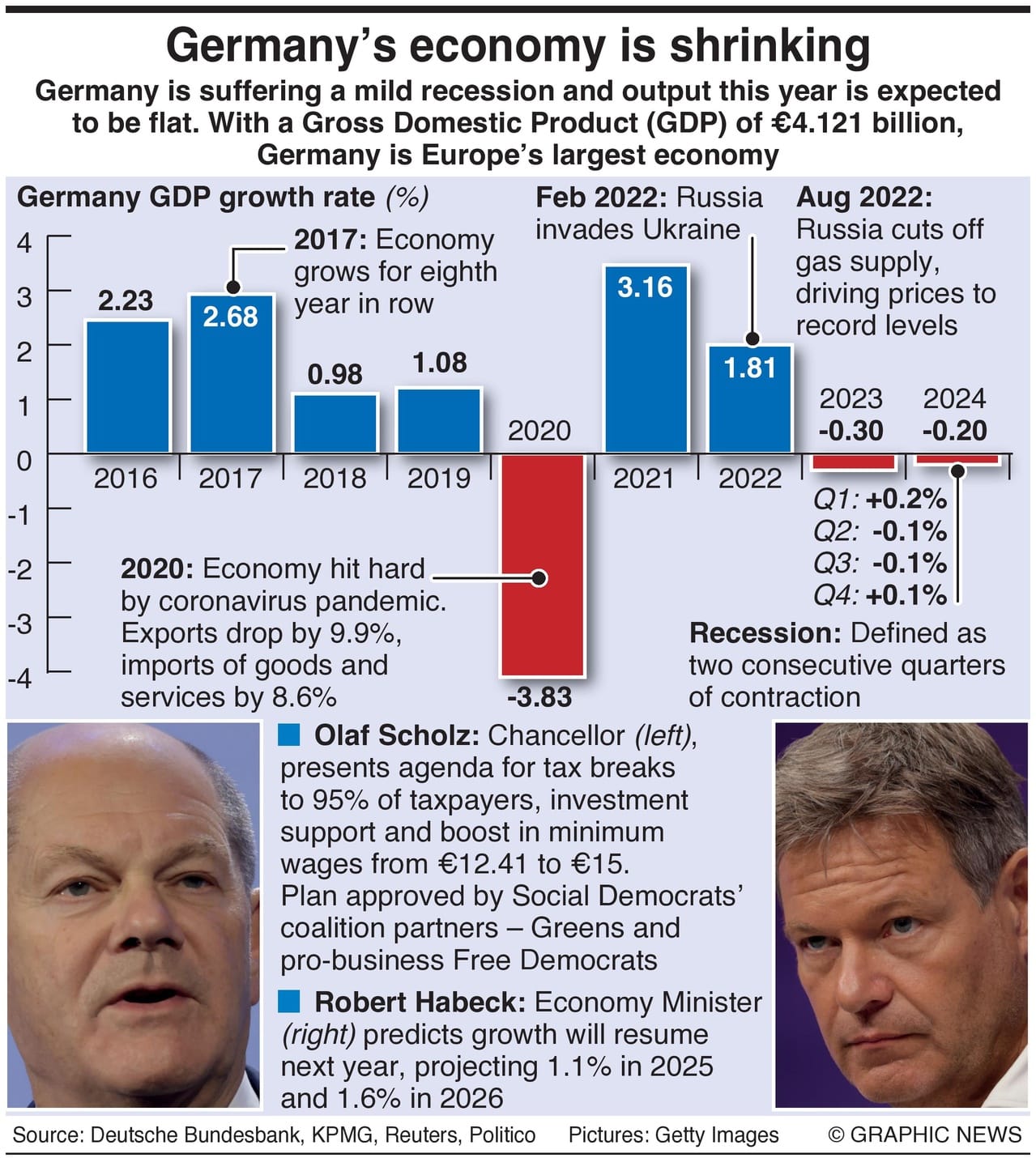Last week, German Economy Minister Robert Habeck confirmed that the country’s GDP will shrink for the second year. He blamed the economy’s deepening weakness on “failures of recent decades.”
Habeck told reporters that the economy is expected to shrink by 0.2% this year, compared to the previously projected growth of 0.3%.

Habeck attributed Germany’s economic weakness to long-running structural problems that have been “embedded” in the economy for decades – a lack of infrastructure investment and skilled labour.
Many Germans were shocked in early September when news broke that Volkswagen, a carmaker employing around 680,000 staff, was considering closing domestic plants for the first time.
“The situation is extremely tense and cannot be overcome by simple cost-cutting measures,” VW brand chief Thomas Schaefer said.
Reuters reports that VW sites at risk -- Osnabrueck, Lower Saxony, and Dresden, Saxony -- are potential targets for a €10 billion ($11 billion) cost-cutting drive.
Last month, chipmaker Intel confirmed it would postpone plans to construct a massive €30 billion factory in the eastern city of Magdeburg, sending Chancellor Olaf Scholz’ struggling government into a panic.
Germany pledged €9.9 billion – a third of the cost – in public funding to the Intel plant when it was announced in June last year.









